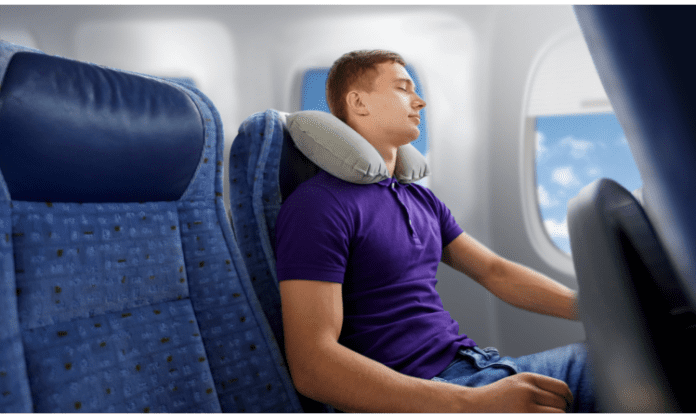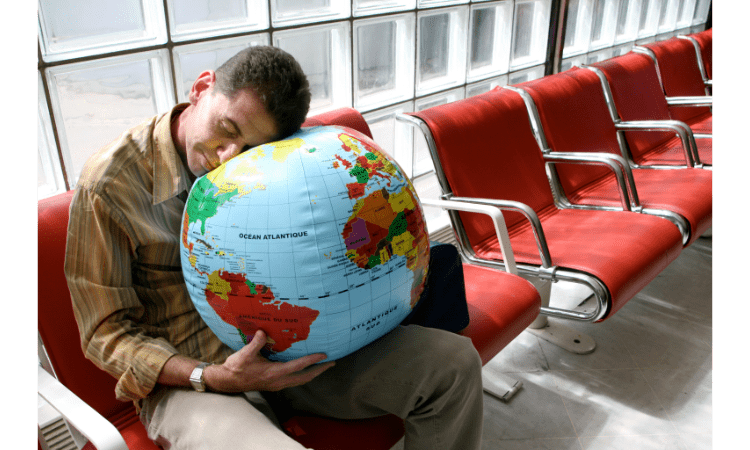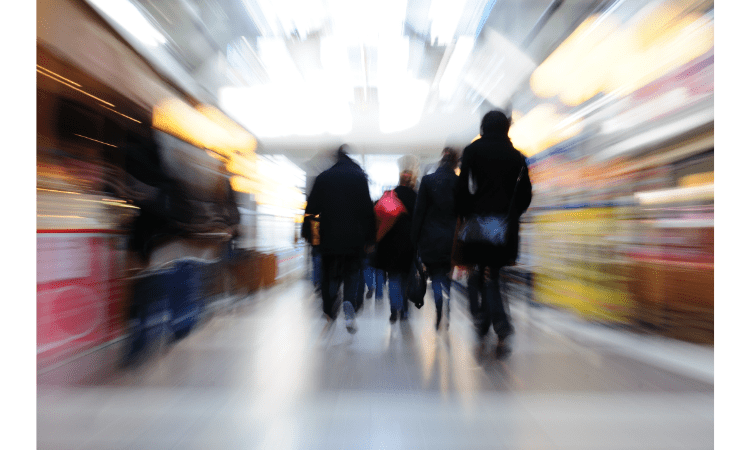
Traveling can be an exciting and enriching experience, but it can also be exhausting. Whether you’re exploring the 10 best and most charming towns in Scotland or diving into the crystal-clear waters of Croatia at the best 10 tourist places to visit, making the most of your sleep while you travel is crucial for enjoying your adventures. In this comprehensive guide, we’ll discuss various tips and tricks on how to sleep well while traveling and how to make the most of your day and night on the go.
Why Traveling Makes You Tired

Traveling can be physically and mentally demanding, with factors like jet lag, unfamiliar environments, and disrupted routines contributing to fatigue. Understanding why traveling makes you tired can help you address these issues and improve your sleep quality.
Jet Lag and Sleep Disruption

Jet lag occurs when you travel across multiple time zones, causing your body’s internal clock to become misaligned with the local time. This can result in difficulty falling asleep, waking up too early, and daytime fatigue.
Unfamiliar Environments
Sleeping in new and unfamiliar environments, such as hotels or Airbnb accommodations, can disrupt your sleep. You may be more sensitive to sounds, light, and other environmental factors that affect sleep quality.
Stress and Anxiety

Traveling can be stressful, with factors such as navigating foreign cities, language barriers, and planning itineraries contributing to anxiety. Stress and anxiety can interfere with your ability to fall asleep and stay asleep throughout the night.
Tips for Sleeping Well While Traveling

- Create a sleep-friendly environment: No matter where you are, try to make your sleeping area as comfortable and relaxing as possible. Bring a travel pillow if it helps you sleep better, and consider using earplugs or an eye mask to block out noise and light.
- Stick to a sleep schedule: Maintaining a consistent sleep schedule, even while traveling, can help regulate your body’s internal clock and improve sleep quality. If you’re experiencing jet lag, gradually adjust your sleep schedule a few days before your trip.
- Prioritize relaxation: Engage in relaxing activities before bed, such as reading a book or practicing deep breathing exercises, to signal your brain that it’s time to wind down.
- Limit caffeine and alcohol intake: Consuming these substances close to bedtime can interfere with your sleep cycle, so try to avoid them in the evening.
- Incorporate physical activity: Engaging in physical activities during the day can help you sleep better at night. However, avoid vigorous exercise close to bedtime, as it may keep you awake.
- Consider sleep aids: If you’re struggling to sleep, you might consider using over-the-counter or prescription sleep aids. However, consult your healthcare provider before using any medication.
- Practice good sleep hygiene: Develop a bedtime routine that signals your brain that it’s time to sleep. This may include turning off electronic devices, dimming the lights, and engaging in relaxing activities.
- Stay cool: Opt for a cooler sleeping environment, as lower temperatures have been shown to improve sleep quality. Adjust the thermostat or use a fan if necessary.
Making the Most of the Day and Night
Plan your itinerary wisely:

To make the most of your day, prioritize the activities and sights you want to see. Don’t overpack your schedule, and remember to leave time for relaxation and spontaneity. Check out some of the best travel planning apps to help you create a balanced itinerary.
Stay hydrated and well-fed

Eating regular meals and staying hydrated can help maintain your energy levels and prevent fatigue. Opt for healthy and nutritious food options while traveling to keep your energy levels up.
Take breaks
Rest when you need to and listen to your body. Taking short breaks throughout the day can help you recharge and avoid burnout.
Engage in evening activities
Making the most of the night can enhance your travel experience. Attend cultural events, explore local nightlife, or enjoy a leisurely beach vacation under the stars.
Be mindful of time zone changes

If you’re traveling across multiple time zones, try to adjust your sleep schedule gradually before your trip. This can help reduce the effects of jet lag and make it easier to adapt to the local time.
Find a balance between exploration and relaxation
While it’s important to make the most of your time while traveling, don’t forget to schedule downtime for rest and relaxation. This can help you recharge and make your travel experience more enjoyable overall.
Stay flexible
Embrace the unexpected and be open to changing your plans if something interesting or unexpected comes up. Sometimes, the most memorable experiences are the ones you didn’t plan for.
Overcoming Sleep Challenges While Traveling
Is It Good to Sleep with a Travel Pillow?

A travel pillow can provide additional support and comfort while you sleep, especially during long flights or road trips. Experiment with different types of travel pillows to find one that works best for you. Some people find memory foam pillows to be the most comfortable, while others prefer inflatable or microbead options.
Why Can’t I Sleep When I Travel?
Difficulty sleeping while traveling can be attributed to various factors, such as jet lag, unfamiliar environments, and stress. Implementing the tips and strategies discussed in this article can help improve your sleep quality while traveling.
Can You Sleep Train While Traveling?
Sleep training is typically associated with helping babies and young children establish healthy sleep habits. While it may not be directly applicable to adults, practicing good sleep hygiene and creating a consistent sleep schedule can help improve your sleep quality while traveling.
What Is It Called When You Travel in Your Sleep?
Traveling in your sleep typically refers to sleepwalking, a sleep disorder in which a person engages in activities such as walking, talking, or eating while still asleep. Sleepwalking is generally harmless, but it can be disruptive and potentially dangerous in unfamiliar environments.
How to Fall Asleep While Traveling
To fall asleep more easily while traveling, try the following strategies:
- Create a comfortable and relaxing sleep environment
- Stick to a consistent sleep schedule
- Engage in relaxing activities before bed
- Limit caffeine and alcohol intake
- Practice good sleep hygiene
How to Sleep the Night Before Vacation

To improve your chances of sleeping well the night before vacation, consider these tips:
- Start packing and preparing for your trip well in advance to reduce stress and anxiety.
- Maintain your regular sleep schedule and bedtime routine.
- Avoid caffeine and alcohol close to bedtime.
- Create a relaxing sleep environment by dimming the lights, using comfortable bedding, and minimizing noise.
- Engage in relaxation techniques, such as deep breathing, meditation, or gentle stretching, to help calm your mind and body.
By following these tips and strategies, you can make the most of your sleep while traveling, ensuring that you remain energized, refreshed, and ready to enjoy your adventures. Prioritizing good sleep habits and being mindful of your body’s needs will not only enhance your travel experience but also contribute to your overall well-being. So, as you embark on your next journey, don’t forget the importance of restful sleep in making the most of your day and night while exploring the world.
In conclusion, prioritizing sleep and rest while traveling is essential for a fulfilling and enjoyable experience. By understanding the challenges that come with sleeping away from home, such as jet lag, unfamiliar environments, and stress, you can effectively address these issues and improve your overall sleep quality. Incorporating the tips and strategies discussed in this article, such as creating a sleep-friendly environment, maintaining a consistent sleep schedule, practicing relaxation techniques, and finding a balance between exploration and relaxation, will help you make the most of your adventures during the day and night.
Additionally, being mindful of your body’s needs and listening to its signals will enable you to stay energized and refreshed throughout your trip. Embrace the unexpected, remain flexible, and always be open to new experiences. At the same time, remember the importance of self-care, including rest and relaxation, in maintaining your physical and mental well-being during your travels.
As you set out on your next journey, keep these valuable insights in mind and prioritize sleep as an integral part of your travel experience. By doing so, you can maximize your enjoyment and create lasting memories that you’ll treasure for a lifetime. Happy travels, and sweet dreams!











